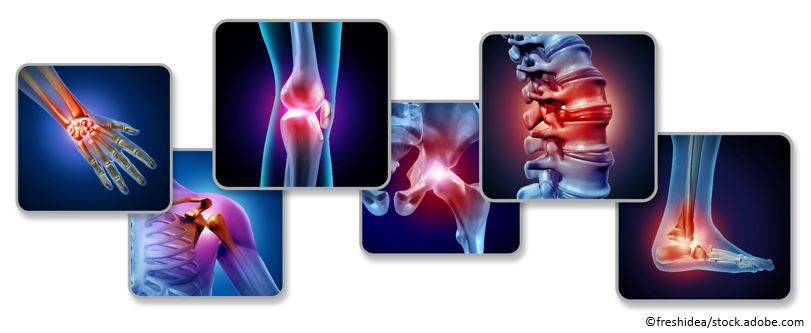- Clinical Technology
- Adult Immunization
- Hepatology
- Pediatric Immunization
- Screening
- Psychiatry
- Allergy
- Women's Health
- Cardiology
- Pediatrics
- Dermatology
- Endocrinology
- Pain Management
- Gastroenterology
- Infectious Disease
- Obesity Medicine
- Rheumatology
- Nephrology
- Neurology
- Pulmonology
Multisite Chronic Pain Increases Dementia Risk, Hippocampal Injury: UK Biobank Analysis
Adults with multisite chronic pain were at increased risk for dementia and accelerated cognitive decline, including memory, executive function, learning, and attention, according to findings of a study including nearly 355 000 individuals in the UK Biobank cohort.

Researchers found further that the risk of neurocognitive abnormality increased with each additional pain site and was mediated by hippocampal atrophy.
“Multisite chronic pain may lead to up to 8 years of accelerated hippocampal aging, an effect that may underlie a series of cognitive burdens,” explained study coauthor Yiheng Tu, PhD, a professor at the Institute of Psychology at the Chinese Academy of Sciences.
The authors, writing in the journal PNAS, cite a large body of evidence demonstrating an association between common types of chronic pain and subsequent dementia. Multisite pain affects up to half of patients with chronic pain, they add, and exacts a significant toll on overall health. Whether persons with pain at multiple points in the body are also at greater risk for neurocognitive abnormalities than those with single site chronic pain or without pain is not well understood.
To study the question further, Tu and colleagues conducted a longitudinal cross sectional study analyzing data from 354 943 persons aged 39 to 82 years in the UK Biobank cohort. They found that multisite chronic pain conferred a significantly increased risk of dementia, more rapid cognitive decline, and greater atrophy in the hippocampus compared to no pain or single-site chronic pain.
Specifically, the risk of dementia among participants with chronic pain at ≥5 sites was 1.59-fold higher than for participants who were pain-free, an effect, the researchers note, comparable to that of heart failure, post-traumatic stress disorder, and depression. Further, when compared with individuals with no pain or single-site pain, those with pain at multiple sites performed worse in tests of fluid intelligence, matrix pattern completion, numeric memory, paired associative learning, and symbol digit substitution, according to study findings.
Compared with individuals with no pain or single-site pain, those with pain at multiple sites performed worse in tests of fluid intelligence, matrix pattern completion, numeric memory, paired associative learning, and symbol digit substitution, according to study findings.
Tu and colleagues also report marked effects on hippocampal volume among participants with multisite pain. They found that chronic pain at a single site was associated with a 9.795 mm³ reduction in the volume in the left hippocampus and 8.272 mm³ in the right. Pain at 3 sites was associated with a reduction in the hippocampus of 33.255 mm³ in the left and 36.042 mm³ in the right. When chronic pain was associated with ≥5 sites, hippocampal volume was reduced 100.330 mm³ in the left and 87.522mm³ in the right. The researchers found after mediation analyses that the decline in fluid intelligence was partially mediated by the observed hippocampal atrophy.
“Our results suggested that cognitive decline and hippocampal atrophy interact biologically and may underlie the increased risk of dementia associated with MCP,” concluded Tu et al.
Reference: Zhao W, Zhao L, Chang X, Lu X, Tu Y. Elevated dementia risk, cognitive decline, and hippocampal atrophy in multisite chronic pain. PNAS. 2023;120:e2215192120. doi:10.1073/pnas.2215192120
